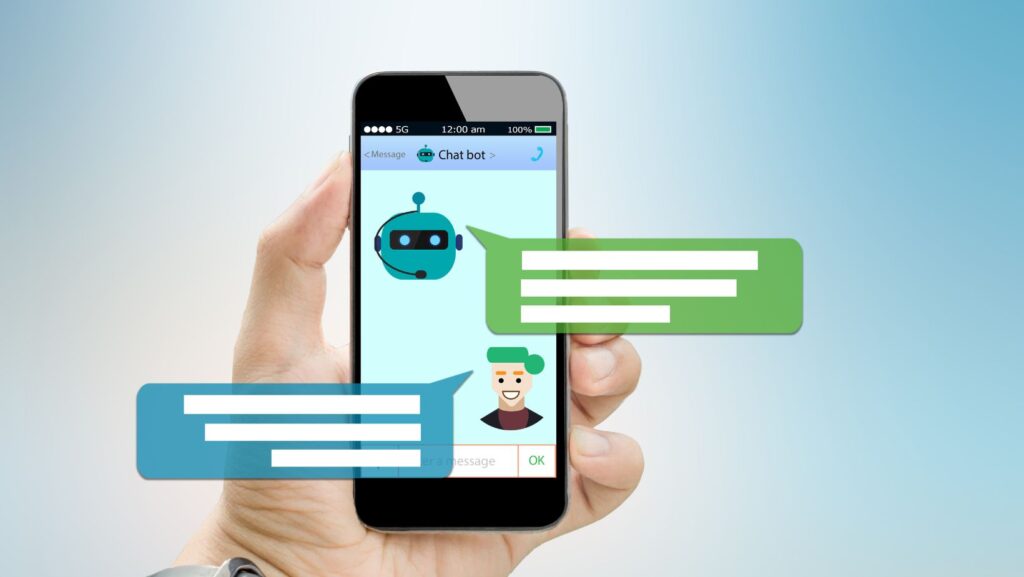The rise of artificial intelligence has ushered in a new era of customer service, with chatbots leading the charge. These intelligent virtual assistants are not just a passing trend; they’re revolutionising how businesses interact with their customers across various industries. From retail to healthcare, finance to travel, chatbots are proving to be invaluable assets in enhancing customer experiences and streamlining operations.
Instant Support
One of the primary advantages of chatbots is their ability to provide instant customer support. Unlike human agents who may be limited by working hours or availability, chatbots are available 24/7, 365 days a year.
This round-the-clock availability ensures that customers can receive assistance at any time, regardless of time zones or holidays. Moreover, chatbots can handle multiple queries simultaneously, significantly reducing wait times and improving overall customer satisfaction.
The response times of chatbots are typically measured in seconds, not minutes or hours, which is crucial in today’s fast-paced digital environment. This immediacy is particularly vital in industries where quick responses can make or break a sale, such as e-commerce or online services. For instance, in the travel industry, chatbots can provide instant information about flight status, booking details, and travel requirements, enhancing the customer experience and potentially increasing conversions.
Cost Reduction
Implementing chatbots can significantly reduce operational costs for businesses. By automating routine inquiries and tasks, companies can lower their staffing requirements for customer service departments.
This reduction in human resources cuts direct labour costs and minimises associated expenses such as training, benefits, and office space.
Chatbots also help reduce training costs as they can be programmed with consistent, up-to-date information, eliminating the need for continuous staff training on new products, services, or policies. Furthermore, by minimising human error, chatbots can help avoid costly mistakes that might occur during manual customer service interactions.
The cost-saving potential of chatbots is substantial. A study by Juniper Research predicted that chatbots will save businesses $8 billion annually by 2022, and they were right. This projection underscores the significant financial impact that chatbot technology can have on a company’s bottom line.
Improved Customer Experience
Chatbots enhance the overall customer experience by offering personalised interactions based on customer data and preferences. By analysing past interactions, purchase history, and browsing behavior, chatbots can provide tailored recommendations and solutions, making customers feel valued and understood.

The consistency in service quality across all interactions is another key advantage of chatbots. Unlike human agents who may have varying levels of knowledge or experience, chatbots provide uniform responses based on their programming, ensuring that every customer receives the same high standard of service.
Quickly resolving common queries and issues is yet another way chatbots improve customer experience. By instantly addressing frequently asked questions, chatbots can significantly reduce customer frustration and improve satisfaction rates. For example, in the iGaming sector, chatbots play a crucial role in enhancing user experience. Gaming companies employ AI-powered chatbots that help players find their preferred offers, such as free spins with no deposit, no wagering bonuses, or free bingo, based on their past preferences or gaming history.
Increased Efficiency
By handling large volumes of queries simultaneously, chatbots allow businesses to streamline their operations significantly. They can provide automated responses to frequently asked questions, freeing up human agents to focus on more complex or sensitive issues that require empathy and nuanced understanding.
Chatbots excel at efficient routing of complex issues to human agents when necessary. They can quickly assess the nature and complexity of a query and direct it to the most appropriate department or specialist, reducing transfer times and improving first-contact resolution rates.
The reduced wait times for customers is a significant efficiency benefit of chatbots. In high-volume industries like telecommunications or utilities, where customer service lines can be notoriously busy, chatbots can handle multiple inquiries concurrently, dramatically reducing queue times and improving customer satisfaction.
Moreover, chatbots can work tirelessly without breaks, ensuring consistent service delivery even during peak hours or unexpected surges in customer inquiries. This scalability allows businesses to maintain high service levels without additional staffing during busy periods.
Enhanced Customer Engagement
Chatbots can proactively engage with customers, offering a level of interaction that goes beyond reactive customer service. They can initiate conversations based on user behaviour, offering product recommendations, promotional information, or guidance through the sales funnel. This proactive approach can lead to increased sales and customer loyalty.
For example, in the e-commerce sector, chatbots can engage shoppers by offering style advice and product suggestions based on their browsing history and preferences. H&M’s chatbot, for instance, acts as a personal stylist, helping customers put together outfits and making personalised product recommendations. This level of engagement not only enhances the shopping experience but also increases the likelihood of purchases and repeat visits.
Chatbots can also be programmed to send timely reminders, follow-ups, and personalised offers, keeping the brand at the forefront of the customer’s mind. For instance, in the healthcare industry, chatbots can send medication reminders, schedule follow-up appointments, or provide post-treatment care instructions, improving patient engagement and health outcomes.
Scalability
As businesses grow, chatbots offer a scalable solution to customer service needs. Unlike human customer service teams, which require significant time and resources to expand, chatbot systems can be quickly scaled up to handle an increasing number of interactions without a proportional increase in costs.

New features or knowledge can be easily added to existing chatbot systems, allowing businesses to rapidly adapt to changing market conditions or customer needs. For instance, if a company launches a new product line, the chatbot’s knowledge base can be quickly updated to provide information and support for these new offerings.
Chatbots can be quickly deployed across new channels or markets, enabling businesses to maintain consistent customer service quality as they expand. This scalability is particularly beneficial for rapidly growing startups or businesses expanding into new markets, as it allows them to maintain high-quality customer service without the need for large-scale hiring and training of new staff.
Moreover, chatbots can handle sudden spikes in customer inquiries, such as those that might occur during a product launch or a service outage, without the need for additional resources. This flexibility ensures that businesses can maintain high service levels even during unexpected events or periods of rapid growth.
From providing instant support and reducing costs to enhancing customer engagement and offering multilingual assistance, chatbots are transforming customer service across industries. Whether in retail, telecommunications, iGaming, or any customer-facing sector, these AI-powered assistants enable businesses to offer faster, more efficient, and personalised support.
As chatbot technology continues to evolve, incorporating more advanced AI and natural language processing capabilities, we can expect even greater benefits in the future. Integrating machine learning algorithms will allow chatbots to become increasingly sophisticated, capable of understanding context, emotion, and even subtle nuances in customer communication.


